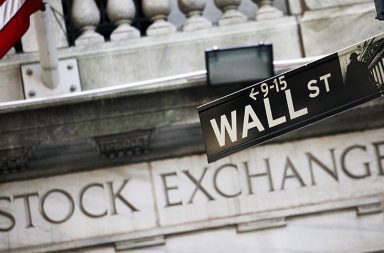On Wednesday, Wall Street’s major indexes weakened suspending the new year’s rally following a report that China is contemplating reducing its purchases of U.S. government debt.
Bank stocks were preferred as U.S. Treasury yields reached 10-month highs following Bloomberg’s report that the U.S. bond market was no longer appealing to Beijing, who is one of the world’s largest holders of U.S. government debt. The report weakened the dollar, which slipped 0.4 percent, while gold jumped to its highest in four months.
At 11:03 a.m. ET, the Dow Jones Industrial Average was down 39.3 points at 25,346.5 and the S&P 500 was down 5.27 points at 2,746.02. The Nasdaq Composite was also down 29.08 points at 7,134.49.
“We’ve had a tremendous run, mostly unabated since Trump’s election in 2016 and with no volatility. If we do see a pullback, that’s going to be a buying opportunity,” said Michael Scanlon, managing director of asset management.
The S&P and the Nasdaq have closed at record highs every day this year, on the optimism over global growth and the expectations strong quarterly earnings. Wells Fargo and JPMorgan, the two largest U.S. lenders, will commence the fourth-quarter earnings season on Friday. Earnings for S&P 500 companies are predicted to increase by 11.8 percent.
“It will be the first time that Corporate America has the ability to talk about guidance that incorporates lower tax rates. It’s going to be confusing and noisy but will be fascinating,” said Art Hogan, chief market strategist.

THE MORNING REPORT
Start your workday the right way with the news that matters most.
Your information is 100% secure with us and will never be shared Disclaimer & Privacy Policy
Nine of the 11 major S&P sectors were lower, led by a 1.6 percent fall in interest-rate sensitive real estate and 0.8 percent drop in utilities. However, the Dow Jones Transport index, an indicator of economic activity, increased by 0.6 percent.
Berkshire Hathaway gained 0.7 percent following the conglomerate’s promotion of two of its top executives, solidifying their status as the probable successors of Warren Buffett.
Declining issues outnumbered advancers on the NYSE by 1,901 to 914. On the Nasdaq, 1,751 issues fell and 1,060 advanced.
 D. Marie
D. Marie 




